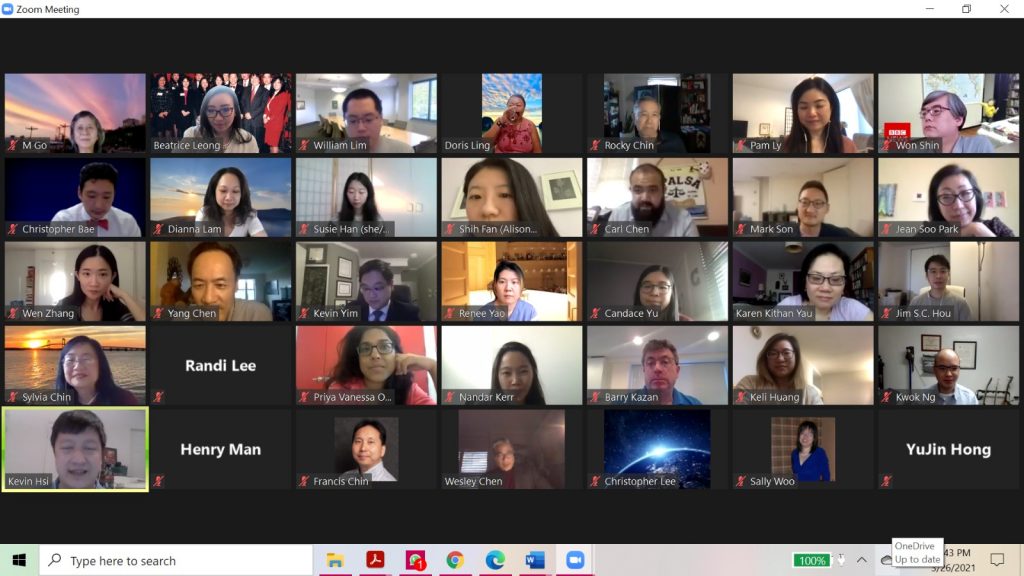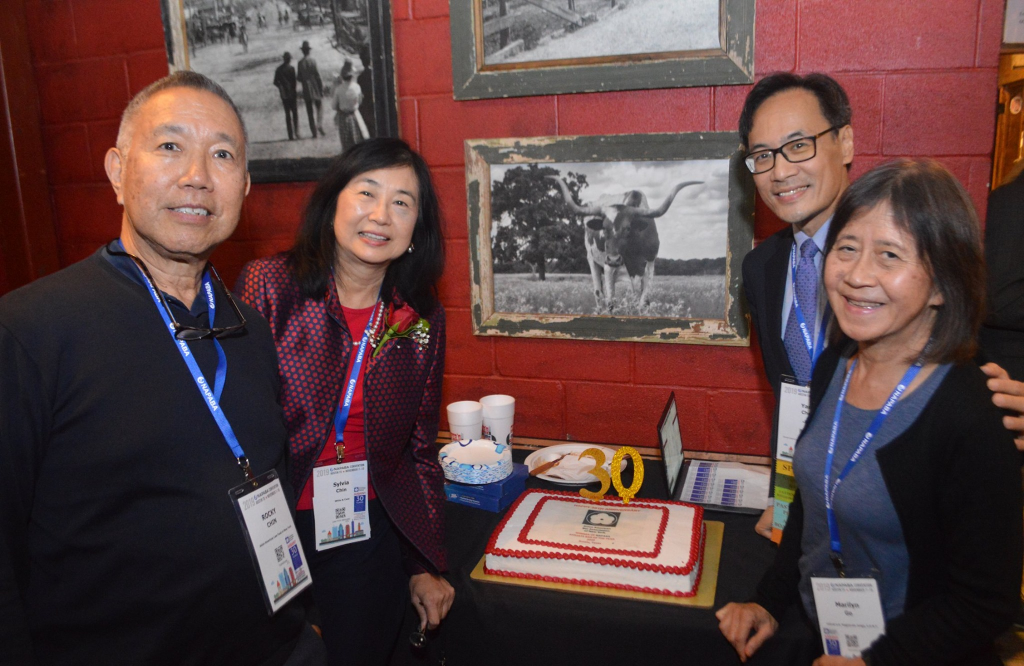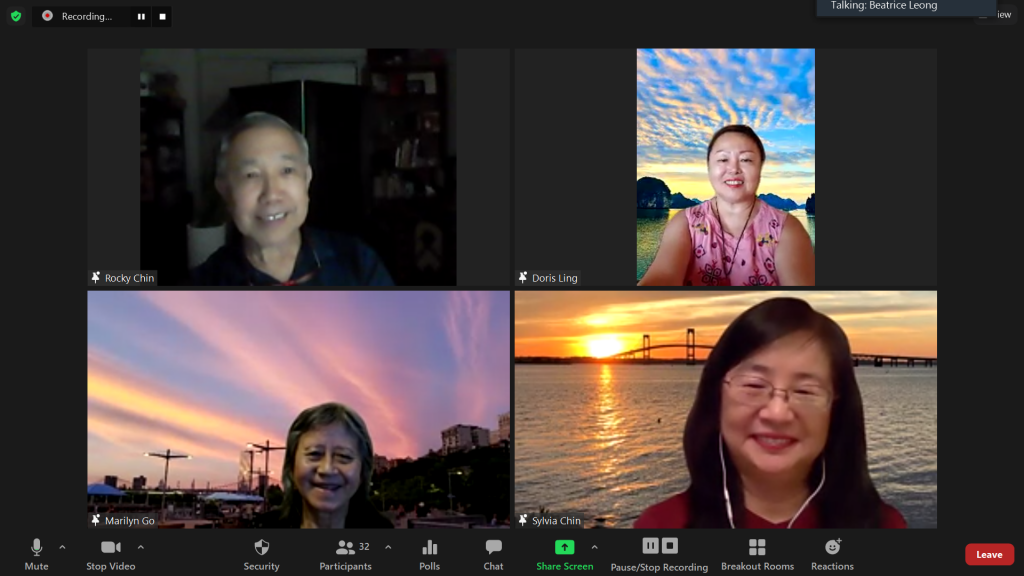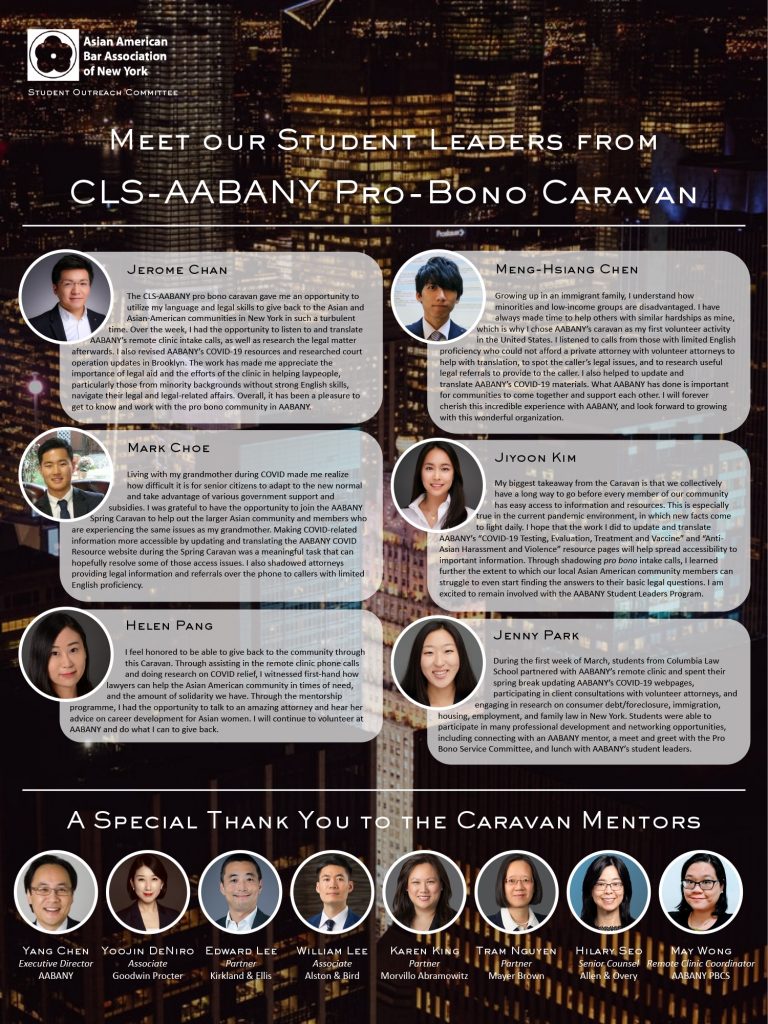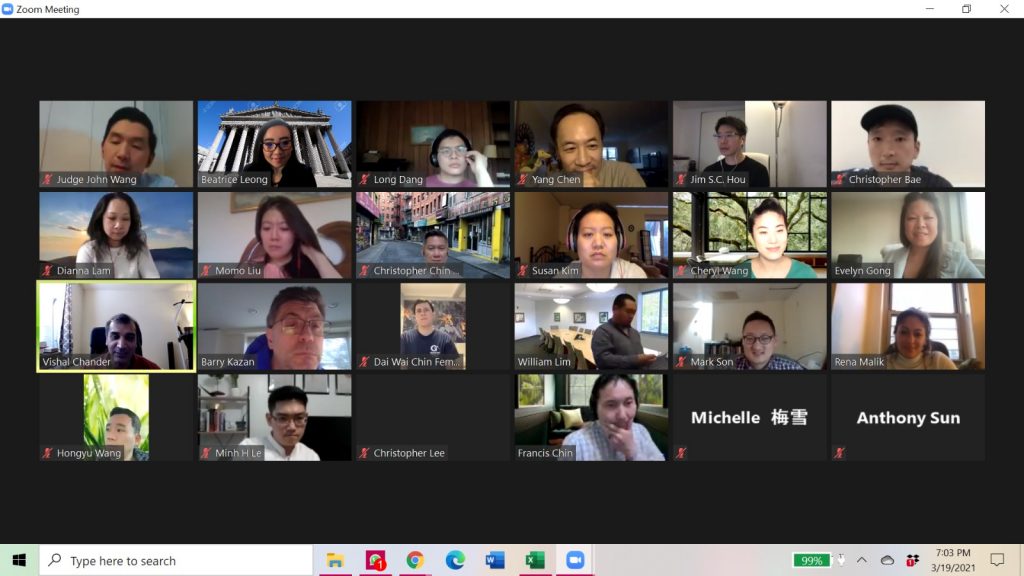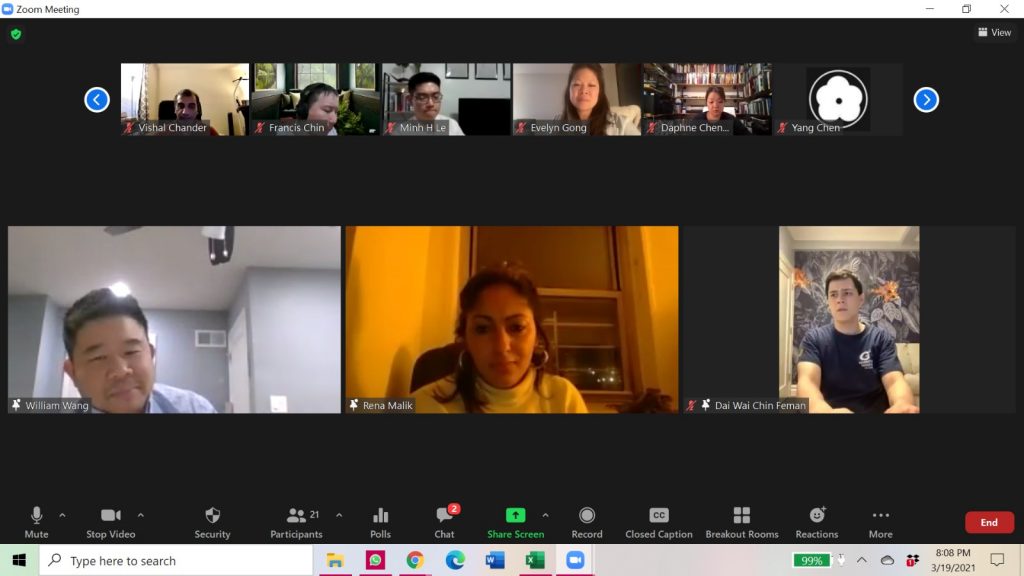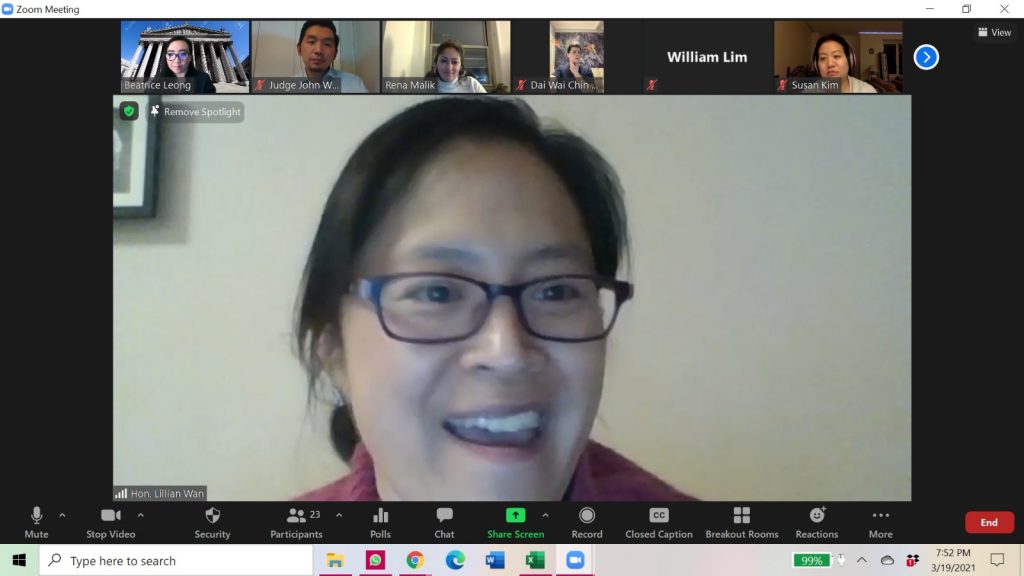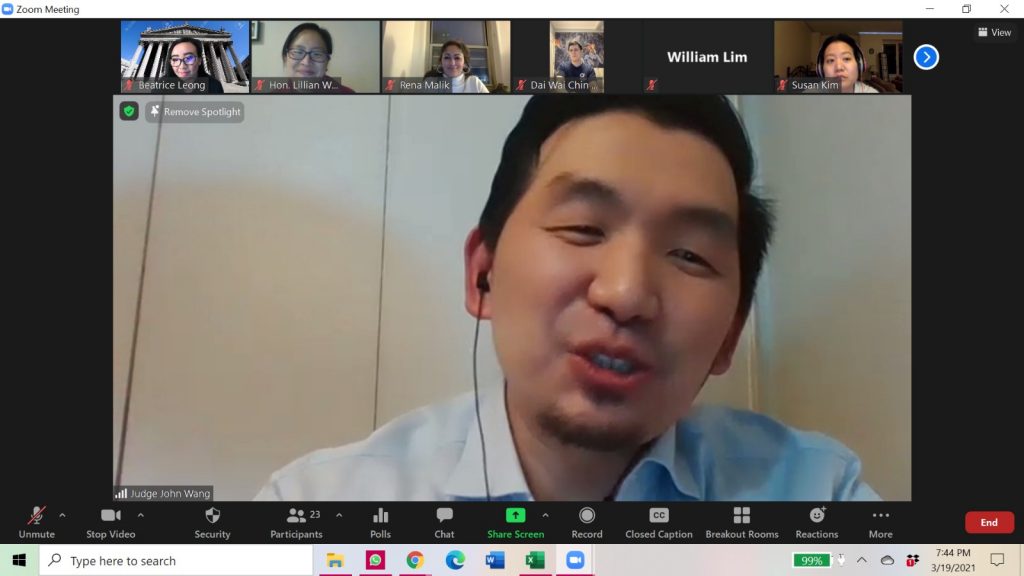On March 16, Chris Kwok, AABANY Board Director, AABANY Issues Committee Chair, and Co-Executive Editor of AABANY’s report on anti-Asian violence, was featured on WGN Radio’s Legal Face-Off podcast. Hosts Tina Martini and Rich Lenkov interviewed Chris and SmithAmundsen Partner Gary Zhao on the rise in anti-Asian hate crimes across the United States. In the podcast, Chris explained that Asian Americans have become the scapegoat of the pandemic due to the increased stress that society has faced during COVID-19, the geo-strategic competition between Asia and America, and the discovery of the first COVID-19 cases in Wuhan, China. From the police to the public at large, Chris stated that we must hold perpetrators of anti-Asian violence accountable for both the harm and fear it engenders. Americans, especially district attorneys, must educate themselves on how Asian Americans experience race. At the end of the interview, Chris noted that “sometimes revolutionary change is hard and we need to push towards it.” To listen to the full interview segment on the podcast, click here and go to timestamp 14:16-25:42.
On March 17, The Asian American/Asian Research Institute (AAARI) at The City University of New York (CUNY) quoted Chris in its statement against anti-Asian hate. AAARI echoed Chris’s assertion that charging pandemic-related violence against Asian Americans as hate crimes “would have sent a signal that this was unacceptable and that if you were going to target Asian Americans, there would be consequences.” To read AAARI’s full statement, click here.
On March 18, MetroFocus interviewed Chris following the Atlanta spa shootings that claimed the lives of eight people, six of whom were Asian women. Chris criticized the way in which law enforcement and the media have deracialized this tragedy by framing it as a product of sexual addiction rather than the historic fetishization of Asian women. That the shootings have not been charged as hate crimes also reinforces Chris’s belief that Asians, as “honorary whites,” face the burden of proving that they have experienced discrimination. Chris hopes that the Atlanta shootings will continue to serve as a “moment of reckoning” for Asian Americans nationwide to share their experiences with race, challenge the divisive model minority myth, and build a more harmonious multiracial society. To listen to the full interview on PBS, click here.
On March 19, Medill Reports Chicago published an audio clip in which Chris described how recent acts of anti-Asian violence have led him to fear for his own safety and the safety of his family. Speaking of his wife, Chris said, “I’d like for her to go about daily life without fear of harrassment and discrimination and that she be a full citizen without having to prove herself in any way.” To read the article and listen to the full audio clip, click here.
Also on March 19, the Daily Mail invoked the AABANY report’s finding that the ongoing surge in anti-Asian attacks has not elicited a corresponding increase in prosecutions. The article quoted Chris’s assertion that “we don’t know a single prosecution, either on the criminal side or civil resolution. It’s difficult to tell people that you exist. We’ll continue to do that until that’s no longer needed.” To read the full article, click here.
On March 26, Chris was interviewed by Yuntong Man from The Pulse on Radio Television Hong Kong in a segment on anti-Asian violence and racism in the United States. Chris stated that Asian Americans are not usually seen as subjects of racism and hate crimes, and because of this, there needs to be a “whole degree of education that the district attorneys in America at any level need to have.” Prosecutors and local government need to be accountable and demonstrate that it is not okay to commit acts of anti-Asian violence. To view the full interview segment, click here.
Here are some news stories that have quoted Chris Kwok from other interviews:
“Son of Atlanta Shooting Victim Calls Accused Shooter’s ‘Sex Addiction’ Claim ‘Bull****’” By Inside Edition Staff, March 19, 2021, Inside Edition, https://www.insideedition.com/son-of-atlanta-shooting-victim-calls-accused-shooters-sex-addiction-claim-bull-65606
“Will Asian Americans ever be accepted as Americans?” By Kara Schroeder, March 19, 2021, China Daily, http://epaper.chinadaily.com.cn/a/202103/19/WS6053f0a0a31099a234354c6d.html
“Meghan McCain retracts defense of Donald Trump calling COVID ‘the China Virus’” By Brian Niemietz, March 22, 2021, New York Daily News, https://www.nydailynews.com/snyde/ny-maghan-mccain-donald-trump-john-oliver-sorry-china-virus-20210322-nrxuq6afhbemnbigg7j2rd2dt4-story.html
“Anti-Asian Hate Crime Crosses Racial and Ethnic Lines” By Masood Farivar, March 24, 2021, Voice of America, https://www.voanews.com/usa/anti-asian-hate-crime-crosses-racial-and-ethnic-lines
“Lawmakers Want To Reform Hate Crime Laws. Will That Actually Ease Attacks On Asian Community?” By Anna Lucente Sterling, March 29, 2021, Spectrum News NY 1, https://www.ny1.com/nyc/all-boroughs/news/2021/03/29/lawmakers-want-to-reform-hate-crime-laws–will-that-actually-ease-attacks-on-asian-community-
Here are some news stories that have mentioned AABANY’s report:
“Arrested suspect in US spa killing spree ‘said he wanted to eliminate his sex addiction’” By An Wentzel, March 18, 2021, Daily Maverick, https://www.dailymaverick.co.za/article/2021-03-18-arrested-suspect-in-us-spa-killing-spree-said-he-wanted-to-eliminate-his-sex-addiction/
“Resources to Support Asian Communities in New York City and Beyond” By ALL ARTS STAFF, March 18, 2021, ALL ARTS, https://allarts.org/2021/03/resources-to-support-asian-artists-communities-new-york-city-and-beyond/?utm_medium=email&utm_campaign=20210322
“A Tipping Point for Asian American Lawyers?” By Vivia Chen, March 19, 2021, Bloomberg Law, https://news.bloomberglaw.com/business-and-practice/a-tipping-point-for-asian-american-lawyers
“Queens College President Confronts Violence Against Asian Americans” March 19, 2021, The Brian Lehrer Show, https://www.wnyc.org/story/queens-college-president-confronts-violence-against-asian-americans/
“急増するアジア系米国住民への差別や犯罪。在米日本人に聞く「今」” March 24, 2021, Yahoo Japan, https://news.yahoo.co.jp/articles/2a8e18a07b2b766f143f4559860073e9dc3e1fbd
“Anti-Asia Marak di Amerika, Kecemburuan Ekonomi Penyebabnya?” By Bogordaily.net, March 24, 2021, Bogordaily.net, https://bogordaily.net/2021/03/anti-asia-marak-di-amerika-kecemburuan-ekonomi-penyebabnya/
“Second thoughts about being an Asian American” By Nikkie Salgado, March 25, 2021, MercatorNet, https://mercatornet.com/second-thoughts-about-being-an-asian-american/71082/
Please also take a look at previous blog posts from February 19, March 1, March 8, and March 15 highlighting news stories about our report. If you have come across a news report or article about our report that is not listed above, please let us know at [email protected].
More public awareness about our report and the rise in anti-Asian violence is needed. Please share our report widely. If you have ideas or thoughts about how we can combat anti-Asian violence, please share them with us at [email protected].


